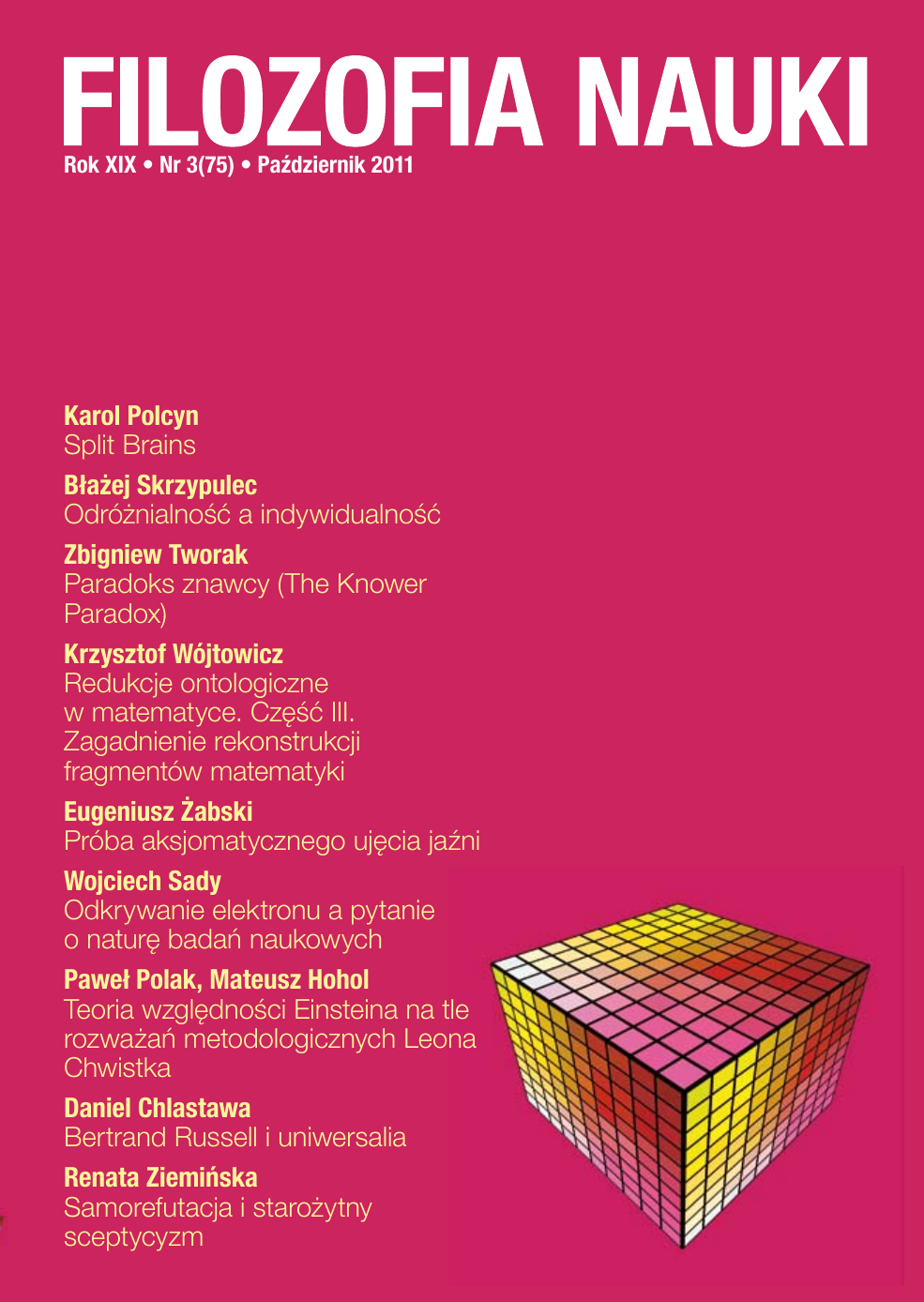Odkrywanie elektronu a pytanie o naturę badań naukowych
Słowa kluczowe:
scientific discovery, Max PlanckAbstrakt
The historical development of scientific knowledge is examined in the context of research, and not, as tradition tells, in the context of justification. It is a story about experimental researches and theoretical investigations conducted in the years 1820-1902, which finally led to the discovery of electron, accompanied by methodological comments. Main results of the analysis are that knowledge is scientific if it has a systemic character, and experimental studies are scientific if they are systematic. „Systemic” means that studied objects or processes are assumed (a) to obey to the same laws, (b) if we know nothing about that the change of experimental situation can influence the given theoretical property of an object or process, than this property, determined in other successful applications of an accepted theory (i.e. the set of laws), should be attributed to objects or processes in new applications of the same theory. „Systematic” means that the same objects or processes are examined experimentally in a number of different, but interrelated, situations (so many as time, money and available laboratory instruments allow). I also try to show that in the historical growth of scientific knowledge hypotheses, understood as „free creations of the imagination”, do not play almost any role. Almost all theoretical discoveries are products of inferences that can be logically reconstructed and whose premises are (1) known and accepted laws of nature, (2) what is known about the studied objects on the basis of approved applications of these laws, (3) new experimental results. The moral of this is that theoretical discoveries appear if and only if the system of scientific knowledge is mature enough: it is impossible to draw conclusions, if you lack the necessary premises. A scientist cannot, by letting her imagination to run wild, to be ahead of her time, and if she tries to do that, she usually goes beyond the boundaries of science.Pobrania
Opublikowane
2011-09-01
Jak cytować
Sady, W. (2011). Odkrywanie elektronu a pytanie o naturę badań naukowych. Filozofia Nauki, 19(3), 71–105. Pobrano z https://www.fn.uw.edu.pl/index.php/fn/article/view/651
Numer
Dział
Artykuły















 Filozofia Nauki | ISSN 1230-6894 | e-ISSN 2657-5868
Filozofia Nauki | ISSN 1230-6894 | e-ISSN 2657-5868